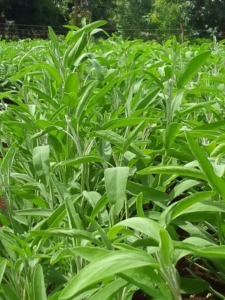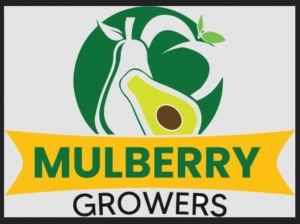Sage Export to UAE 2024: The Best Supplier Dubai | Abu Dhabi | Sharjah | Ajman | Ras Al Khaimah | Fujairah | Umm Al-Quwain
Sage export to UAE is done by traders and fresh produce sellers like Mulberry Growers and companies, distributors, or wholesalers that import from such sellers. Mulberry Growers also sells to the broader Middle East. Ideally, one could find a company in Yellow Pages UAE or similar directories where that want to be known as fresh produce importers list themselves. However, in practice, the best approach is to deal directly with an exporter, especially one that also grows their sage for export to the UAE. Mulberry is such an exporter providing reliable sage export to UAE.


In this guide, we detail how sage export to UAE happens across all regions of the UAE. We would love for you to grasp such critical information that helps you be better in your sage-related business. Whether you are to import sage to the UAE for redistribution, wholesaling, retailing, or incorporation in your own products and preparations, we have strived to cover how sage export to UAE happens in Dubai, Abu Dhabi, Sharjah, Ajman, Ras Al Khaimah, Fujairah, and Umm Al-Quwain.

Dubai as a Major Hub for Sage Export to UAE
Dubai is the primary trading hub for sage export to UAE due to its advanced logistics infrastructure and strategic location. The city’s Jebel Ali Port, one of the largest and busiest ports globally, facilitates efficient importation and distribution of produce. Dubai’s Free Zones, such as the Jebel Ali Free Zone (JAFZA), offer tax incentives and customs advantages, attracting a high volume of importers and exporters. These zones provide streamlined customs procedures, reducing lead times and costs, which is crucial for sage export to UAE.
Abu Dhabi’s Strategic Supply Chains of Sage Imports
Abu Dhabi’s business structure for imported produce focuses on strategic supply chains, leveraging its port facilities and investment in cold storage. The Abu Dhabi Ports Authority operates key ports like Khalifa Port, which supports efficient handling of bulk and containerized sage export to UAE. The emirate’s emphasis on infrastructure development and its role as a central logistics node ensure that produce can be stored and distributed effectively across the region. Investments in temperature-controlled storage facilities further enhance the supply chain efficiency for perishable goods.
Sharjah’s Focus on Wholesale for sage export to UAE
In Sharjah, the business structure for imported produce revolves around wholesale markets. The Sharjah Central Market is a pivotal point for the distribution of herbs like sage, fruits, and vegetables, serving as a primary hub for wholesalers of sage imported into the UAE who then supply retailers across the emirate and neighboring regions. The market’s organization facilitates bulk trading and efficient movement of goods. Additionally, Sharjah’s focus on local market dynamics and its strategic location near Dubai and Ajman enhance its role in the regional supply chain supporting for export to UAE.
Ajman’s Small-Scale Distribution Channels:
Ajman, with its smaller geographic size and population, relies on a more localized approach to the distribution of imported produce, thus allowing for sage export to UAE in bulk. The business structure here includes a network of smaller wholesalers and retailers who manage distribution within the emirate. This localized structure allows for tailored supply chain solutions, focusing on meeting the specific demands of Ajman’s residents. Smaller-scale cold storage and distribution centers support this approach, ensuring that produce remains fresh and meets local market needs.
Ras Al Khaimah’s Focus on Agriculture and Trade:
Ras Al Khaimah has a unique business structure due to its focus on integrating agricultural initiatives with trade. The emirate supports local agricultural projects that complement the sage export to UAE. RAK’s trade policies encourage a balance between locally grown and imported produce, with a focus on sustainability and food security. The presence of specialized trade zones and agricultural development projects helps in maintaining a steady supply of both local and imported produce.
Fujairah’s Role in Bulk Importation is Good for sage export to UAE
Fujairah’s geographical location on the eastern coast of the UAE makes it a critical point for bulk importation of produce. The emirate’s port facilities, particularly the Port of Fujairah, handle large volumes of bulk goods, including volumes of sage export to UAE. Fujairah’s role in the importation and storage of large quantities of produce is supported by its infrastructure for bulk handling and distribution. The focus on large-scale logistics operations helps in catering to both local and regional markets.
Umm Al-Quwain’s Import-Export Balance:
Umm Al-Quwain, with its relatively smaller market size, maintains a balanced approach to importing and exporting produce. The emirate’s business structure is characterized by a focus on niche markets and specialized products. Local businesses often handle a mix of imported and locally sourced produce, with an emphasis on catering to specific consumer preferences for sage export to UAE. The emirate’s strategic initiatives support a well-managed balance between import needs and local supply.
Integration with Free Zones:
Across various UAE regions, the integration with Free Zones plays a crucial role in the business structure of imported produce. Free Zones offer significant advantages such as tax exemptions, customs benefits, and streamlined regulations. Companies operating within these zones, such as those in Dubai’s JAFZA or Abu Dhabi’s KIZAD, benefit from enhanced logistics capabilities and reduced operational costs. This integration supports efficient importation, storage, and distribution of produce across the UAE.
Regulatory Framework and Compliance:
The UAE has a stringent regulatory framework for the importation of produce, ensuring compliance with health and safety standards. The Federal Customs Authority and various emirate-specific departments enforce regulations related to food safety, quality control, and import documentation. This regulatory environment ensures that imported produce meets high standards, protecting public health and maintaining quality. Each emirate adheres to these regulations, contributing to a structured and safe importation process.
Improving Logistics for sage export to UAE:
Technological advancements in logistics significantly impact the business structure for imported produce across the UAE. The adoption of technologies such as automated inventory management, real-time tracking, and advanced cold chain solutions enhances the efficiency of the supply chain. Companies in major emirates like Dubai and Abu Dhabi leverage these technologies to streamline operations, reduce waste, and improve the freshness of produce. The UAE’s focus on innovation in logistics supports a modern and effective importation framework.
How to Order Sage Exports to the UAE

To order sage export to UAE from Mulberry Growers, connect with us here:
- Website: www.mulberrygrowers.com
- Our Email: commercial@mulberrygrowers.com
- Call/WhatsApp: +254 716 150 111 OR +254 748 897 749